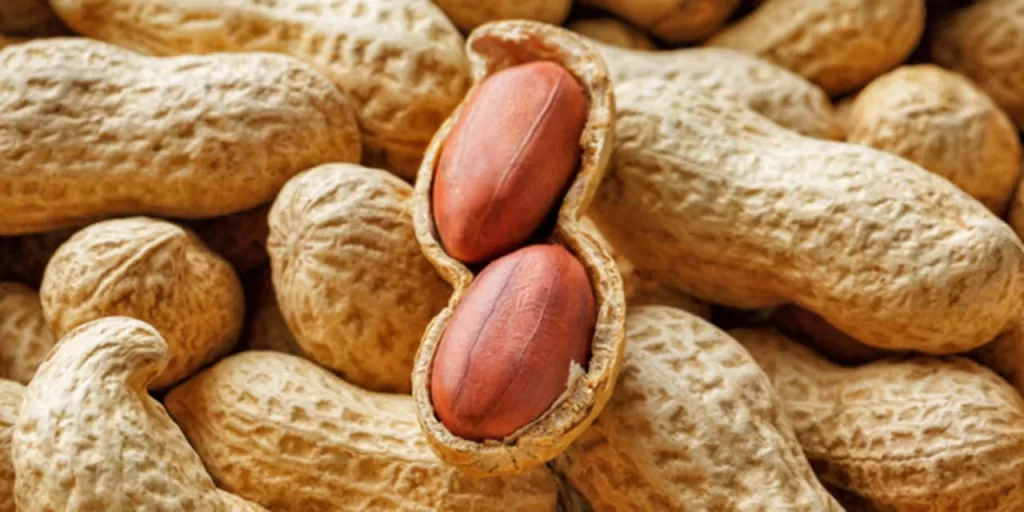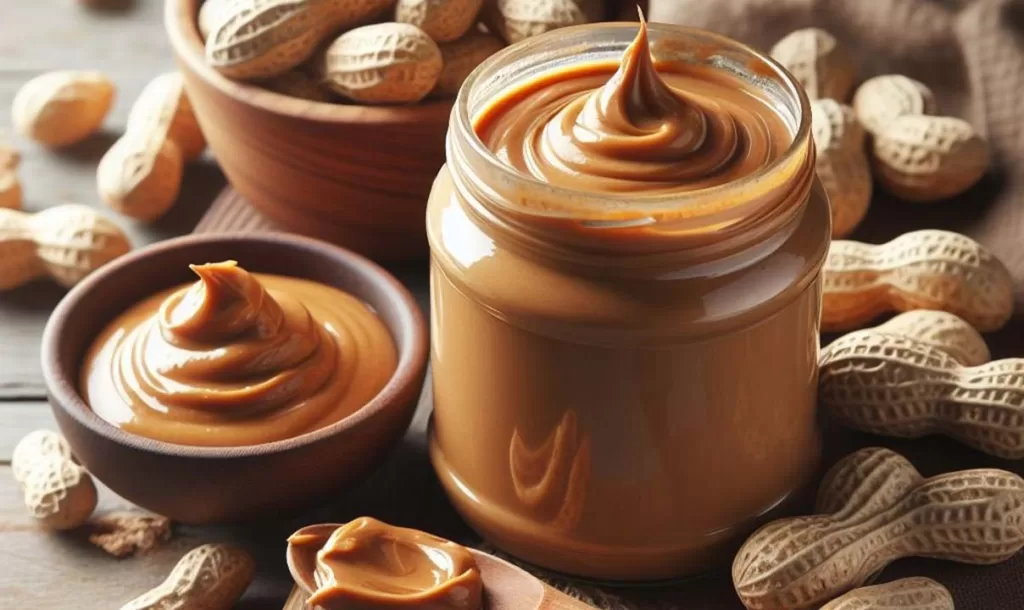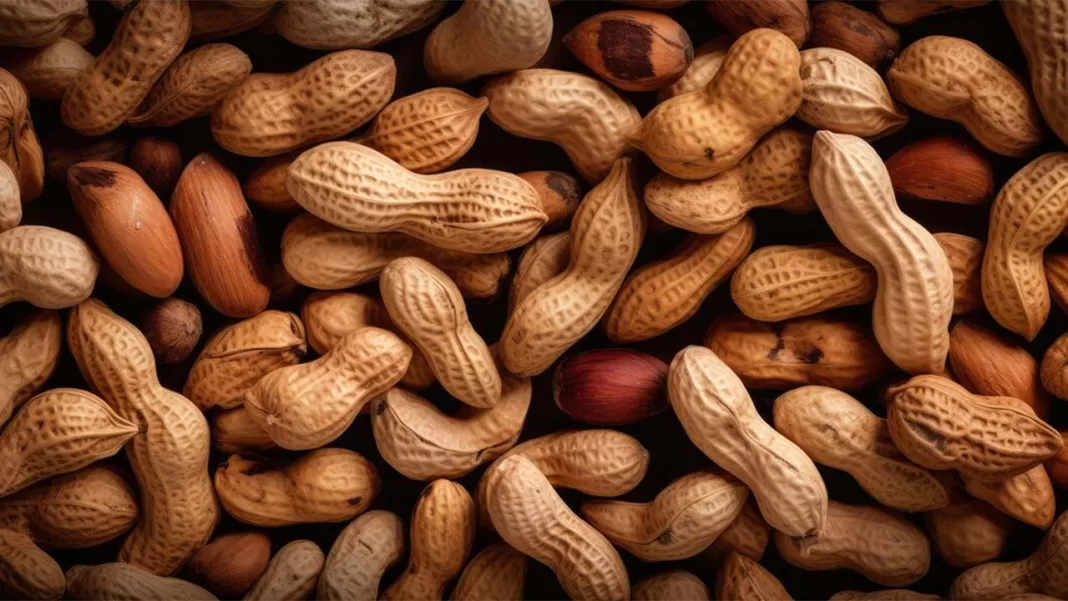Peanuts, also known as groundnuts, are a highly nutritious food that can be consumed in various forms: raw, roasted, boiled, as oil, or in butter. Although many people think of them as nuts, they are actually legumes, belonging to the same family as beans and lentils.
The versatility of peanuts makes them a popular ingredient in kitchens worldwide. Additionally, they are a food rich in a combination of proteins, healthy fats, vitamins, and minerals. Below, we outline the main properties of peanuts and their health benefits.
Peanuts: What They Are and Their Properties
The peanut (Arachis hypogaea) is a plant cultivated for its edible seeds. It has been consumed for at least seven thousand years due to its significant nutritional value. According to the United States Department of Agriculture (a major global producer), 100 grams of raw peanuts provide the following nutrients:
- Water: 6.5 grams.
- Fats: 49.2 grams.
- Proteins: 25.8 grams.
- Energy: 567 kilocalories.
- Dietary fiber: 8.5 grams.
- Carbohydrates: 16.1 grams.
- Total sugars: 4.72 grams.
Peanuts also contain vitamins A, C, and E, folates, niacin, pantothenic acid, and minerals such as calcium, iron, magnesium, potassium, zinc, sodium, phosphorus, and selenium.
Among the most important properties of peanuts, we find that they are antioxidant, cardioprotective, energizing, protein-rich, nutritious, digestive, anti-inflammatory, and regulate blood sugar.
6 Health Benefits of Eating Peanuts

Peanuts are not true nuts but legumes, related to beans and lentils. Thanks to these properties, consuming peanuts is highly beneficial for human health. Here are some advantages of eating peanuts in their various forms.
- Maintains a Healthy Immune System
The immune system is the body’s natural defense against infections and diseases. Arginine (an amino acid naturally found in peanuts) stimulates the production of T-lymphocytes, helping to prevent ailments and respond effectively to external threats.
- Helps Prevent Cancer
According to various studies, peanuts have anti-cancer properties thanks to resveratrol, a polyphenolic antioxidant that acts as a chemopreventive agent by neutralizing free radicals and reducing cellular damage. In particular, peanut consumption has been linked to a lower risk of developing colorectal cancer.
- Can Combat Cardiovascular Diseases
A study published by the American Heart Association demonstrated that eating 4 to 5 peanuts daily reduces the risk of cardiovascular events by 20% and the risk of heart disease by 13%. This is because peanuts contain healthy fats, such as monounsaturated and polyunsaturated fatty acids, which help improve blood lipid profiles and reduce inflammation, key factors in preventing heart disease.
- Reduces the Risk of Type 2 Diabetes
Peanuts contain magnesium, dietary fibers, and have a low glycemic load, properties that translate into better blood sugar control. This can reduce the risk of developing type 2 diabetes.
- Helps Control Weight
Incorporating peanuts or peanut butter into your diet does not lead to weight gain. In fact, studies have shown that peanuts can help reduce total cholesterol and LDL cholesterol (known as “bad cholesterol”), contributing to a healthier lipid profile.
Moreover, the fiber and protein content in peanuts helps increase satiety, which can help control appetite and, consequently, support weight management.
- Other Benefits of Peanut Consumption
Regular consumption of peanut products has been associated with several benefits related to improvements in cognitive abilities, such as memory and concentration.
Additionally, there is a reduction in levels of depression, anxiety, and cortisol, indicating a positive effect on emotional well-being and stress management. These effects can be attributed to the bioactive compounds present in peanuts, which contribute to a more balanced mental state and overall better health.
What Is the Best Way to Eat Peanuts?

Peanuts are a very versatile seed and can be enjoyed in various forms. Nutritionists recommend adding a small amount of peanuts to your daily diet to take full advantage of their benefits.
Although they can be eaten raw and without skin, consuming peanuts with their skin and roasted is better for taking advantage of their antioxidants. There are also studies indicating that boiling peanuts is healthy. In addition to eating the seeds, you can enjoy them in butter, oil, or as a snack between meals.
As for how to store them, it’s best to keep them in a sealed, dark, and cool place to prevent the fatty parts from oxidizing. It is important to note that all these recommendations and benefits apply to unsalted peanuts, as excessive sodium can increase the risk of hypertension and other cardiovascular problems. Additionally, it is recommended to eat a moderate amount, in limited portions of up to 30 grams per day.
Possible Side Effects and Contraindications of Eating Peanuts
It is important to note that consuming peanuts may not be beneficial for everyone, especially if eaten in excess. Peanuts can cause gas or bloating due to their tannin and phytate content; in some cases, they can also cause diarrhea. Additionally, eating salted peanuts can increase the risk of hypertension.
Another aspect to consider is the potential for peanut allergies, which, according to the Mayo Clinic, can present symptoms such as swelling or redness of the skin, diarrhea, nausea, vomiting, abdominal pain, difficulty breathing, risk of choking, and nasal discharge. If you suspect you may be allergic to peanuts, it is crucial to consult a doctor.
Those with kidney disease or who are transplant recipients should also limit their intake of peanuts, as well as other nuts and seeds, due to their high potassium and phosphorus content. Peanut consumption, especially in butter form, is also not recommended for those who suffer from migraines, as the tyramine in peanuts can trigger severe headaches.
Add Peanuts to Your Diet and Enjoy Their Benefits
Incorporating peanuts into your diet can provide a wide range of health benefits, as long as they are consumed in moderation. This nutritious food can help strengthen the immune system, improve cardiovascular health, and assist with better weight management, among other benefits.
Remember, to maximize their properties and minimize potential risks, it is recommended to consume them with their skin, roasted, and unsalted. Be sure to integrate them appropriately into your diet to make the most of their advantages.













